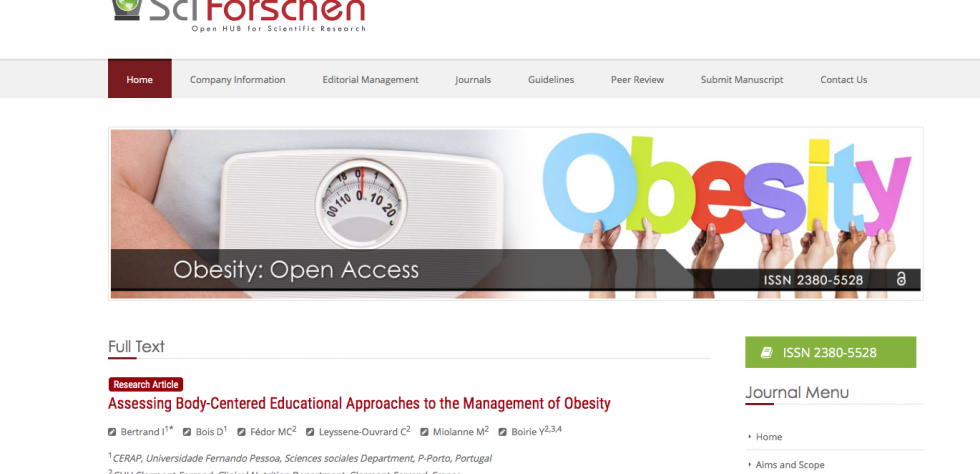We are pleased to share with you an internationally published study titled “Obesity Open Access”. This document was written by Isabelle Bertrand as one of the components of her doctoral thesis.
As a precursor, it deals with the evaluation of bodily education approaches (including somato-psychopedagogy) that are not well developed in the management of obesity.
Titre de l'article : Assessing Body-Centered Educational Approaches to the Management of Obesity
Auteurs : Bertrand I., Bois D. Fédor M.C., Leyssene-Ouvrard C., Miolanne M., Boirie Y.
Revue : Obesity Open Access
International standards specify that proper management of patients suffering from obesity should be based on an interdisciplinary approach. Approaches which target the awareness and positive perceptions of the body in conjunction with re-education and positive re-enforcement are underdeveloped and underutilized strategies in the management of obese patients. By bringing the very real energy disturbances within the patients to the surface allows them to make meaningful lifestyle changes that yield positive changes to their physical bodies while respecting their perceptions of their "social body".
The specific purpose of this study was to evaluate the effects of body-focused approaches utilized within interdisciplinary re-educational frameworks while working with obese patients as they were observed in French hospitals. The study group was comprised of 18 obese patients (42 years on average, BMI 39 kg / m²) randomly selected during their evaluations by the nursing staff. An analysis of the transcriptions of 95 consultation session files was conducted using a grid of the relevant criteria for the management of obesity.
What was demonstrated in the results of the analysis is that the obese patients were keenly interested in body-focused educational approaches because of the overall positive effects on their well-being as well as the increased relaxation they experienced. These beneficial effects were directly related to the improvements in their relationship with their body, quality of life, motivation, self-esteem, stress adaptation, eating behaviours and the overall patient-caregiver interaction.
These results clearly show that body-focused educational approaches constitute an important new tool in the management of obesity that merits inclusion in the broader spectrum of interdisciplinary care of obese patients.




